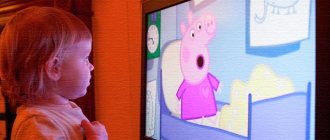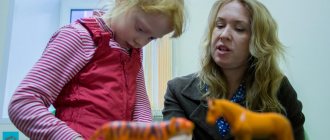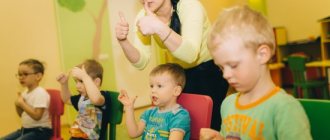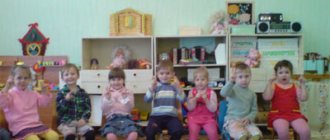- home
- Speech development
Speech development specialists do not give clear deadlines for when a child should speak at 2 years old. There are only approximate guidelines for standards that parents and teachers can rely on. Parents' concerns are understandable. However, if a child does not speak at 2 years old, Komarovsky believes that this is not a reason to diagnose him and is unnecessarily worried.
Normal speech development of a child
What time does a baby start talking? In the first months of life, the child has no speech. The baby shows a desire to communicate by smiling and crying. By the second month, the baby begins to buzz. This stage of development is very important. Walking allows you to prepare and develop the muscles of the articulation organs.
By 7-9 months of age, the baby begins to babble. Syllables appear in speech that do not carry awareness. The child simply mutters ba-ba-ba, ma-ma-ma and other sets of letters. At 9-11 months, he already understands well the conversation and intonation of others. Knows about 50-100 words by ear. At 11-14 months of age, the baby begins to pronounce words. The vocabulary already contains the following words: “mom”, “dad”, “woman”, “uncle”, “woof-woof” (dog), “bo-bo” (hurt), “bi-bi” (car) and other. There should be 10 words by the year.
A one-year-old child carefully follows the movements of his relatives’ lips during a conversation and tries to repeat the words and articulation of adults. If you constantly talk to your baby, he will quickly learn to repeat words and reproduce them correctly.
Girls begin to speak 2-4 months earlier than boys. This occurs due to differences in brain structure. In boys, the connection between the hemispheres is less developed, which slightly complicates the conduction of nerve impulses. Therefore, boys start talking a little later, which is the norm.
At one and a half years old, the child is already forming two-word phrases. He says in an imperative mood: “Dad. Give”, “Mom. Go." By 18 months of age, he pronounces words in the plural.
By the age of two, a child already knows about 1000 words. At this age, children begin to ask questions: “What is this?”, “Who is there?”, “Why?” In a 2-year-old child, you can hear small sentences: “This is a dog,” “This is a chair,” “Give me a bear,” “Where is daddy?”
First real speech
The time comes when the baby begins to speak his first intelligible words. The first words are usually related to his environment and these words usually appear between 10 and 15 months of age. After the appearance of the first words , he suddenly begins to expand his vocabulary. Initially, learning one word per week, your baby experiences a growth spurt where he seems to be learning several new words every day.
The average number of expressive words for children aged 18 to 24 months is about 50 words .
Between 24 and 36 months, the speech a child uses becomes increasingly similar to that of adults.
Child uses
- pronouns
- adjectives
- auxiliary
- and suggestions.
It is believed that in the period from 3 to 4 years of life, the grammatical basis of the language is established, sentences are already constructed without errors, but only with slight difficulty in pronunciation.
As speech improvement progresses, the length of the statements voiced by your child also increases. Pronunciation is developed with the expansion of vocabulary. It is important to know that a child under the age of 3 can pronounce words any way he likes . Between 4 and 5 years of age, more moderate impairments in pronunciation are allowed, and after the fifth year of life he should pronounce all sounds correctly .
Komarovsky on the development of speech function
Dr. Komarovsky is a pediatrician who became famous thanks to his programs. In them, he gives recommendations to parents on children's health and education. In television programs, the doctor spoke more than once about the development of speech.
Komarovsky talks about the importance of a child’s communication with parents and people around him. According to him, the baby develops correctly when parents are present during the game. Adults help him explore the world. During communication, mom or dad teach how to throw a ball, what to do with a pyramid, and so on, and give a task (instructions). Example: “Take the ball and bring it to mom,” “Throw the ball to dad.”
While playing together, the baby learns to listen and analyze the parents’ speech. He has a desire to learn to speak, pronounce words correctly, construct phrases and sentences. This is very important, especially at the stage of transition from understanding the oral speech of others to reproducing it independently.
Etiological reasons for the lack of speech in 2-year-old children
There can be many reasons for the lack of speech. The attention of parents, the health of the child, mother and father are of great importance for speech activity. Also, delayed speech development (SDD) is provoked by stress.
Etiology of speech delay:
- Injuries during childbirth, complicated pregnancy history.
- Neurological pathologies.
- Hearing loss, deafness.
- General underdevelopment of speech function.
- Mental retardation, mental retardation.
- Autism, cerebral palsy.
- Attention deficit hyperactivity disorder.
- Insufficient attention from relatives.
Speech may be delayed by a complicated history of pregnancy and childbirth. Hypoxic brain damage has a bad effect on speech development. It occurs due to placental abruption, strong uterine tone throughout pregnancy, and late toxicosis (eclampsia). Eclampsia is a serious problem during pregnancy, as it severely damages the blood vessels of the placenta. In this case, blood flow is hampered, the child experiences a deficiency of nutrients and especially oxygen.
With strong uterine tone, a spasm of blood vessels occurs. The blood flow is partially blocked, the baby experiences hypoxia. With partial placental abruption, the same thing happens. Hypoxic damage to the brain greatly impedes its development. The formation of ischemic foci begins in the brain tissue, which later manifest themselves as speech disorders.
Brain function is greatly influenced by methods of assistance during childbirth and poor labor performance. Damage to the nervous system provokes the use of a vacuum extractor and obstetric forceps during obstetrics. It is also undesirable to use the technique of expelling the child by pressing on the stomach.
Subsequently, delayed speech development is caused by aspiration of amniotic fluid, entanglement with the umbilical cord (especially double). The child experiences hypoxia. Prolonged labor of more than 12 hours is dangerous for the child due to hypoxic damage to brain tissue.
Hypoxic conditions result in delayed neuropsychic development, mental retardation, cerebral palsy, autism, attention deficit disorder and hyperactivity.
Smoking, drinking alcohol, and using drugs during pregnancy have a negative effect on the development of speech function. These habits can lead to deafness (congenital), gradual hearing loss, and hypoxic damage to brain tissue. Smoking, alcohol, and drugs provoke impaired brain development, prematurity, threat of miscarriage, infectious diseases of early age, and autoimmune pathologies.
Speech delay is possible in autism. An autistic child is unable to communicate normally with parents and children. Lack of interaction with others leads to delayed speech development or absence of speech.
Why a child does not speak at 2 years old: reasons
There are many reasons why a child does not speak at this age. Most often, the baby is influenced by several factors at once that cause delayed speech development. Congenital pathologies can be combined with psychological reasons that affect speech development, such as stress, pedagogical neglect and others.
Reasons why a child does not speak at 2 years old:
- Pathologies of intrauterine development and birth injuries. Intrauterine asphyxia of the fetus and difficult childbirth can negatively affect the development of certain areas of the brain, including those responsible for the development of speech.
- Neurological diseases. Any neurological pathology can cause speech underdevelopment in a baby. From general muscle hypotonicity to severe forms of brain development disorders.
- Hearing problems. Congenital deafness or even partial hearing loss always affects the development of speech. The cause of hearing loss may be an unfavorable course of pregnancy, poor heredity, or complications after an infection.
- Speech disorders, such as general speech underdevelopment or alalia, can cause a child to not speak at all at 2 years of age. Such disorders arise as a result of a combination of many negative factors during pregnancy: alcohol consumption, smoking, intoxication, severe infections.
- Intellectual impairments: mental retardation of varying degrees, mental retardation can also cause the child to start speaking later. It is important to diagnose the disorder in a timely manner and begin drug treatment and corrective work with a speech pathologist.
- Autism. Autistic children lag behind in speech development due to their isolation and unsociability. Such children do not make contact with adults, so they may not speak or lag behind their peers in speech development.
- Attention deficit. Lack of attention from adults to the baby can also cause his lack of speech. If a child is not given attention and has little interaction with him, his speech may develop extremely slowly or be absent altogether.
Etiology of the absence of speech function according to Komarovsky
Dr. Komarovsky, in addition to the main causes of delayed speech development, identifies others. The main problem for modern parents is increased attention to speech development. If the child does not start speaking before the age of 2, the relatives are very worried, nervous, and take the child to a speech therapist, neurologist, or otolaryngologist. Such increased attention forces the child, on the contrary, to continue to remain silent.
Many parents rush their baby to talk. They begin to study it intensively, which reduces the speed of speech development. The child wants to play, but he is forced to sit over books, drawings, cards. Children at 1.5 years of age experience difficulties with attention, so they quickly get bored with activities. Tasks that are not appropriate for age, prolonged sitting only repel the preschooler from studying. He may refuse to talk at all.
Komarovsky often talks about a modern problem - gadgets. Parents do not want to work with their child. They devote more time to the computer, tablet, and TV.
Relatives early teach the child to play games on a tablet, use phones, watch cartoons, and read few books. Games and animation do not allow speech and imagination to develop. It is especially harmful to let a preschooler over 1.5 years old use gadgets. At this time, there is a surge in speech development. If you miss the early period of formation of speech function, the child will be severely delayed.
The next problem, according to Komarovsky, is the high employment of adults. Parents living in cities are constantly at work. Some of them work until late. On weekends, city residents try to relax: go to clubs, restaurants, go fishing, go shopping, watch TV, go to the gym. For this reason, the child does not have time to communicate with relatives. He is either with a nanny or in kindergarten, and this is not enough for full speech development. A preschooler may protest and become completely silent.
One of the reasons for silence is the lack of motivation to speak on the part of parents. If a preschooler is silent, this does not always mean that he cannot speak. The child was not motivated by his parents to develop speech. He responds adequately to requests and tasks without using speech, so he sees no point in mastering speech skills. The baby often simply hums, nods, or points to an object or relative.
How to teach a child to speak
Authors : Medical Observer
As soon as your child turns two years old, you notice a big “breakthrough” in his vocabulary. It turns out that he already knows a huge number of words and can construct entire sentences consisting of four or five words. He can even use pronouns and knows singular and plural numbers. Understanding and comprehension of what is said are also improving, and now he can already carry out three of your consecutive commands. Already now he is able to say his name.
With the right attitude and serious motivation, your child can accumulate up to 300-400 words in their vocabulary by their third birthday. It is already much easier for him to express his emotions and desires. Yes, he sometimes stammers, but only because his thinking becomes more complex, as he learns more and more complex things and therefore sometimes searches for words to more accurately express his thoughts.
All this is part of his growing linguistic mastery, a feature of the process of mastering the art of speech.
At four years old, with a vocabulary of about 1,500 words, your child can speak almost like an adult and is ready to carry on a conversation. He is able to answer many questions and he himself also asks more and more “why?” You will probably even hear words that you really don't want to hear from him. When you read a fairy tale to him, he may retell some part of it. And in a good mood, a child can even compose a fairy tale himself. This period is the best time to load it up with reading books - some children just at this age begin to read themselves.
Parents really can do a lot to support and accelerate their child's speech development. Here are some general tips.
It starts in the womb
The development of speech begins in the womb - during the last trimester of pregnancy, the fetus reacts especially strongly to sound stimuli. Because listening is the first step to learning to speak, experts say parents can stimulate language development simply by talking to their unborn baby and letting them listen to different sounds, especially classical music.
Your baby will get used to your voice before birth, and after birth he will be able to immediately recognize your voice and associate it with your face.
Talk to your baby constantly
Your child won't learn to swim until he's in a pool. Likewise, he won't be able to learn to speak if you don't talk to him. So start talking to your baby while he is still in the womb and continue to talk to him every day after he is born.
Show him how your lips move when you speak. Change the speed, tone, intonation, pitch and volume of speech. By doing this, you will be able to catch and concentrate his attention. In addition, he will become familiar with the intonation variety of speech early.
Connect words with images
Look at your child's face when you talk to him. Watch his reactions. Let him see your face when you talk to him. Show him pictures of the objects you name. This way he will early learn to associate words with images and name objects and people.
Repetition is the mother of learning
Children actually learn through repetition of words and actions. When teaching your child a new word, repeat it over and over again for several days until he learns to pronounce it correctly. Let him repeat a syllable or word as many times as he wants.
Ask your child questions
Ask your child questions, even if he cannot answer them yet. Perhaps he will try to express his emotions through gestures. And after the child speaks, continue asking questions. They will not only help your baby learn to speak and express his thoughts, but will also stimulate his brain, forcing him to think.
Read fairy tales to your baby
Read him stories every day. This will introduce him to new words and concepts, and most importantly, develop his imagination. When he already knows letters, recognizes words and pictures, let him try to read on his own. Encourage him to read something himself, but don't force him to do it.
Music will develop the speech apparatus
Sing to your baby and let him sing along with you. Harmonious sounds are not only pleasant to the ear, but their repetition also develops the child’s speech apparatus. Songs and melodies will teach your baby to change the pitch of his voice, tone and rhythm.
Use available tools when teaching
Make your lessons fun. You don't have to buy flashcards or books to teach your child to speak or recognize colors.
When you are cooking, for example, ask him to name the colors of fruits and vegetables that he sees on the table.
Let him count how many tomato slices you have. At the grocery store, ask him to tell you how many boxes of cereal he sees on the shelf. As you travel, challenge him by counting the trees you pass by. You can also invite him to choose a color and after a while tell you how many cars of this color he saw on the road.
Discourage baby talk
If you want your child to speak correctly, you should not talk to him in a childish way. Using a combination of adult speech and baby talk on your part is only appropriate for the first six months. Then stop the baby talk completely!
published 13/01/2016 07:45 updated 28/03/2019 – Pedagogy and psychology
Komarovsky's recommendations
For worried parents whose baby has not spoken by the age of 2, Dr. Komarovsky advises visiting a doctor. The examination includes consultations with a neurologist, speech therapist, psychologist, and otolaryngologist. An ENT doctor is needed to rule out deafness or hearing loss. To do this, the specialist will refer you for a hardware test called an audiogram. It will determine your hearing level and range of sounds.
A neurologist is the main specialist working with preschoolers who have delays in speech function. It will help identify the causes of speech deviations. The doctor will conduct the necessary examination (history, examination), prescribe additional techniques: neurosonography, electroencephalography, magnetic resonance imaging and others. If necessary, he will recommend therapy (Encephabol, Pantogam and other drugs), which will give impetus to the appearance of speech function.
During the examination, the neurologist will find out:
- General development of the baby (when he began to smile, walk, understand the conversation of others).
- Skills at the time of examination.
After the examination, the neurologist refers you to a speech therapist for consultation. The specialist conducts an examination and special tests for speech function. After the first visit, the speech therapist writes a conclusion and draws up a lesson plan. While working with the child, the teacher develops speech function: teaches him to pronounce sounds, words, and sentences properly.
Common pathologies that a speech therapist detects:
- Short bridle.
- Increased muscle tone of the articulatory apparatus.
Consultation with a psychologist is necessary for all children with speech impairments. The specialist will assess the state of speech function and identify pathology. A psychologist is also necessary to exclude or confirm psychological trauma, chronic stress and other conditions. Based on the results of the examination, treatment is prescribed (conversations, art therapy, trainings, dolphin therapy, etc.), if required.
Doctor's advice:
- Spend more time with your baby.
- Constantly articulate all your actions and intentions.
- Do not give your preschooler phones or tablets, and limit watching cartoons.
- Read more, memorize nursery rhymes, poems, songs.
- Do not scold your child when he refuses to say something.
- Ask questions to the baby, namely: “What do you see in the picture?”, “Who came?”, “What color is the hat?” and so on.
- Organize the baby’s communication with peers and older children.
- Protect from stressful situations and conflicts in the family.









